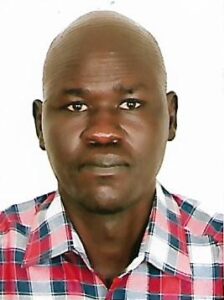MESSAGE FROM THE FOUNDER
The prolonged six years conflict that emerged between the government and oppositions factions in 2013, has displaced 2.2 Million people, 2.2 million are refuge in the neighboring countries. The tension and inter-communal conflicts in South Sudan has a negative impact on the country economic, social and political.
In the South Sudanese context of prolonged war and militarization, the transformation of gender norms and the normalization of violence have translated into increasing levels of sexual violence against women and girls.
Since the conflict started, gender inequalities have been violently exacerbated[1]; the number of reported cases of gender-based violence increased five-fold in the two years up to December 2015. Women and girl survivors of rape and gender based violence should have access to justice. Only about one in five childbirths involves a skilled health care worker and the maternal mortality ratio is estimated at 789 per 100,000 live births. Every third school has been damaged, destroyed, occupied or closed since 2013, and more than 70 per cent of children who should be attending classes are not receiving an education.
According to the UNESCO 56% girls in South Sudan are married before the age of 18 and in some parts of South Sudan girls as young as 10 years old are perceived as ready for marriage and childbearing, while boys of the same age are at times supporting their families. With such high rates of teenage pregnancy, girls face significantly increased health risks from unsafe abortions, complications in pregnancy and childbirth, sexually transmitted infections (STIs) and HIV. Child marriage often leads to unintended pregnancy and can result in high rates of school dropout.
The conflict has left many families and individuals on traumatized situation, due to the losses experienced in lives, hunger, displacement, living in camps, witnessing and experiencing violence, poverty, being unable to send children to school, and the uncertain future. South Sudanese require a holistic trauma and healing processes. However, there are limited organizations and professional personnel who are providing psychosocial support across the country.
In the current pandemic era, National NGO and faith-based organizations should be support and equipped to provide a holistic services and public sensitizations on COVID 19 preventions and response both in urban and rural areas and distributes protection equipment to provide the spread of the virus within the communities and provide psychosocial support. The CSOs and FBO should be supported to design activities tailored to rebuilding social cohesion and confidence-building, using techniques including sports, drama, psychosocial support, rehabilitation centers, and financial support as many families are absolutely vulnerable.
In support of the above, research should be undertaken on South Sudanese approaches to trauma healing so that issues are addressed from a South Sudanese approach. Provide ‘healing the healers’ training for national NGOs, CSOs, CBOs, and FBOs so that South Sudanese are leading trauma healing efforts.
African Christian Ecumenical Alliance calls for the following actions;
- ACEA calls for accountability for the perpetrators of sexual and gender-based violence crimes at the community and national levels and the implementation of the UN Convention on the Elimination of all Forms of Discrimination Against Women (CEDAW) that should include prevention of child marriages.
- ACEA calls for women’s effective and active participation in the National Dialogue in rural and urban areas.
- Urges implementation of UN Security Council Resolution 1325 to increase participation of women in security efforts.
- ACEA calls for compliance in letter and in spirit with the 25% women’s quota in the national parliament and emphasis on quality representation as opposed to merely filling the quota obligations.
- ACEA calls for implementation of the National Action plans and national solidarity amongst women’s civil society organizations.
- ACEA appeals to the international and regional organizations, donors and the UN agencies to assist and fund the mental health and psychosocial support services in South Sudan.
- ACEA appeal to donors and government who support recovery and resilience programs should do so in consultation with the grassroots organizations and civil societies. Research has shown that there is huge gap of funding for recovery and resilience programs in South Sudan limited opportunities to help communities rebuild their coping mechanisms.
- ACEA appeals to all the stakeholders to implement Chapter V of the Peace Agreement on transitional justice, accountability, reconciliation, and healing. We ask the TGoNU to immediately develop enabling legislation to implement the establishment of the Commission for Truth, Reconciliation, and Healing.
- Trauma healing should be incorporated into the National Dialogue process at all levels.
- ACEA asks donors to support research on South Sudanese approaches to trauma healing so that nation-wide efforts toward trauma healing are evidence-based.
- ACEA appeals to individuals and families to set aside their anger and to keep our children from being haunted by vicarious trauma.
- Establishment of a healing center which will include survivors of SGBV.
